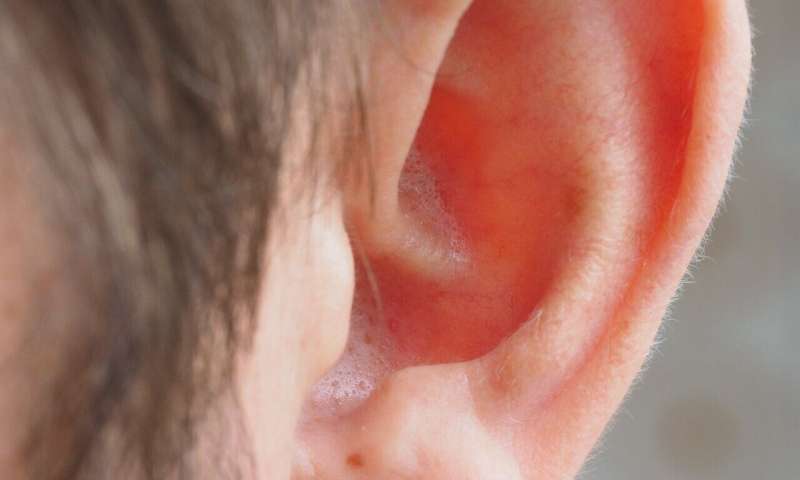
While children receiving chemotherapy routinely undergo hearing tests, adults don’t, and a new study by UC San Francisco reports for the first time that significant hearing issues often occur among adult survivors of the most common forms of cancer.
The researchers found that more than half the survivors in their study who had been treated with chemotherapy experienced significant hearing problems.
Previously, it was unknown how frequently survivors of breast, gastrointestinal, gynecologic or lung cancer suffered clinically meaningful levels of hearing loss and tinnitus (ringing in the ear).
The paper is published Wednesday, July 27, 2022 in BMJ Supportive & Palliative Care.
“While hearing loss associated with the administration of platinum drugs was reported in adults with testicular and head and neck cancer, our study is the first to demonstrate that hearing loss and tinnitus are highly prevalent problems in survivors of the four most common types of cancer,” said first author Steven W. Cheung, MD, a UCSF professor of Otolaryngology—Head and Neck Surgery.
“Another important and previously unknown finding from our study is that these high rates of hearing loss and tinnitus occur not only with platinum drugs, but with another class of chemotherapy drugs called taxanes,” he said. “Given that platinum and taxane-containing chemotherapy regimens are the ones most commonly used to treat the majority of cancers, these findings have huge implications for clinicians who treat cancer patients, as well as for cancer survivors.”
The study had 273 cancer survivors who were 61 years old on average and had completed cancer treatment about five years earlier.
The investigators found that more than 50 percent experienced significant hearing loss confirmed by an audiogram, a type of hearing exam, and more than 35 percent reported tinnitus.
Reflecting the negative impact that hearing loss and tinnitus can have on mood and social interactions, participants with hearing loss reported moderate to severe levels of impairment with routine activity, such as listening to television or radio, talking with family members and friends, or conversing in restaurants.
Those with tinnitus reported that this problem interfered with their ability to concentrate or relax, their mood and enjoyment of life, and their sleep.
The findings hold important implications for the care of cancer patients and survivors, said the investigators. Given that hearing loss and tinnitus are not assessed routinely in patients receiving chemotherapy for breast, gastrointestinal, lung and gynecologic cancers, and that many of these individuals may be experiencing some degree of age-related hearing loss, evaluations of hearing loss and tinnitus should be done prior to, during, and following chemotherapy administration, the authors said.
Additionally, the authors noted that because hearing loss is often underestimated, routine screening and follow-up should be done by hearing professionals. Individualized management plans for tinnitus require consultation with specialist clinicians.
Notably, while 31 percent of the participants denied having hearing loss, they were later found to have hearing impairment on audiometry.
“While individuals often underestimate hearing problems, our findings point to the need for cancer survivors to have their hearing tested,” said senior and corresponding author Christine Miaskowski, RN, Ph.D., a member of the UCSF School of Nursing and the UCSF Helen Diller Family Comprehensive Cancer Center. She is also a Fellow of the American Academy of Nursing in recognition of her achievements in nursing.
Source: Read Full Article
